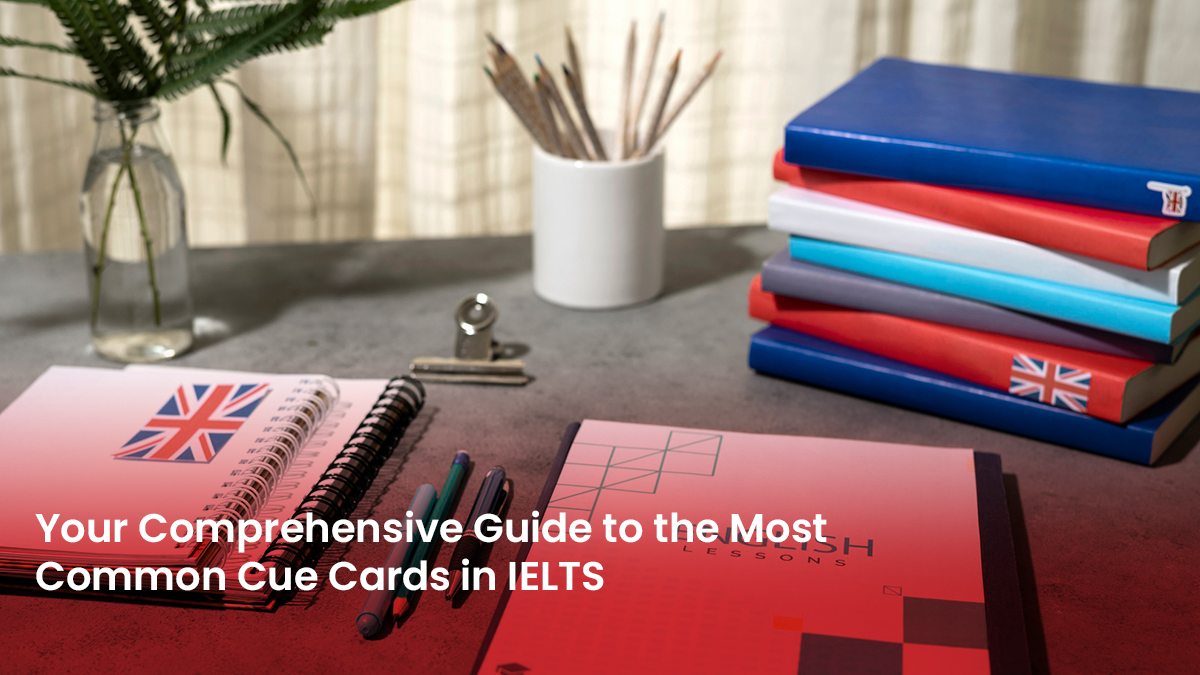When applying to top universities in France, a well-crafted statement of purpose (SOP) is a vital component of your application. The SOP allows you to present your academic background, career aspirations, and personal motivations in a compelling narrative. In 2025, as the competition for spots in prestigious French institutions continues to grow, a standout SOP will help you differentiate yourself from other applicants.
With guidance from MSM Unify, you can develop an SOP that effectively aligns your academic achievements with your future goals, while also adhering to the expectations of French universities. This blog provides an updated approach to writing an SOP for France in 2025, focusing on structure, essential elements, and best practices, as well as the latest statistics and data.
Why is an SOP for France important?
An SOP is your opportunity to convey your individuality and explain why you are the perfect fit for the program and institution. Here are the key reasons an SOP is essential:
Demonstrating suitability
Your SOP for France will allow you to showcase how your academic journey, experiences, and skills align with the program you wish to pursue. Admission committees are looking for candidates who not only meet academic requirements but also show growth potential.
Clarifying intentions
The SOP clarifies your motivations for choosing study in France and your specific program. Admissions committees want to understand your long-term career aspirations and how the program fits into your plans.
Personal connection
A well-written SOP provides a personal narrative that distinguishes you from other applicants. It offers a chance to share your unique story, experiences, and the factors that inspired your educational journey.
|
Importance of an SOP for France |
Purpose |
|
Demonstrates suitability |
Showcases academic and professional background |
|
Clarifies intentions |
Outlines study and career plans |
| Personal connection |
Adds a unique narrative to your application |
Key components of an SOP for France
For your SOP for France to be effective, it should include several key components:
Academic background
This section should detail your academic history, highlighting relevant courses, research projects, and achievements. Emphasize how your education has prepared you for the program you’re applying to.
Example:
“I completed my bachelor’s degree in international relations at ABC University, where I focused on European studies. My thesis on EU integration processes reinforced my desire to pursue a master’s degree in international affairs in France.”
Career goals
Clearly articulate your short-term and long-term career goals, demonstrating how the chosen program will help you achieve them.
- Short-term goals: Describe what you aim to accomplish immediately after graduation.
- Long-term goals: Discuss your aspirations and the impact you hope to make in your field.
Example:
“My immediate goal is to work as a policy analyst in an international organization, while my long-term ambition is to contribute to global governance initiatives that address pressing global issues.”
Reasons for choosing France
Explain why France is your preferred study destination. Consider highlighting the country’s educational quality, cultural diversity, and the specific benefits of studying there.
Key reasons to include:
- Educational excellence: France is home to many prestigious universities known for their research and quality education.
- Cultural exposure: Studying in France offers a unique cultural experience and the opportunity to learn a new language.
Example:
“I chose France for its rich academic tradition and cultural diversity. The opportunity to immerse myself in a multicultural environment while pursuing my studies excites me.”
|
Category |
2025 Data |
|
Total international students |
350,000 approximately |
|
Top source countries |
China, Morocco, and the United States |
| Average annual tuition (Master’s) |
€10,000-€20,000 approximately |
| Living expenses (per year) |
€12,000-€15,000 approximately |
Please note: These numbers are estimates, and actual values may vary depending on specific universities and locations. Be sure to verify the latest information from official sources.
Program-specific reasons
In this section, elaborate on why you have chosen a specific program at a particular university in France. Highlight unique aspects such as course offerings, faculty expertise, and research opportunities that attracted you to the program.
Example:
“I am particularly drawn to the master’s program in international affairs at XYZ University due to its strong focus on global governance and policy analysis. The chance to learn from renowned faculty members who are actively engaged in international diplomacy aligns perfectly with my career aspirations.”
Personal motivation
This section allows you to share personal stories and experiences that inspired you to pursue your chosen field. Discuss challenges you’ve overcome, influences in your life, or moments that solidified your commitment to your career path.
Example:
“My passion for international relations was ignited during a volunteer experience in a refugee camp, where I witnessed firsthand the impact of global policies on vulnerable populations. This experience deepened my resolve to advocate for equitable policies.”
How To Write an Exceptional SOP for Scholarships
Formatting your SOP for France
In 2025, your Statement of Purpose viz. SOP for France must be well-structured, clear, and easy to read. Proper formatting ensures professionalism and helps the admissions committee follow your narrative. Below are detailed instructions on how to effectively format your SOP for France based on the guidelines suggested by MSM Unify overseas education consultant.
1. Word count and paragraph length
Word count: Your SOP for France should be between 800 and 1,500 words, depending on the university’s specific requirements. This guide aims for a longer SOP with a word count closer to 2,500 words, but always adhere to the limits specified by the university.
Paragraph length: Keep your paragraphs concise, ideally 2-3 sentences per paragraph, with a maximum of 130 words. This structure enhances readability and helps maintain the reader’s attention.
2. Use of headings
H1 (Title): The title of your SOP for Frances should be written in Title Case.
Example:
“Mastering Your Statement of Purpose (SOP) for France: A Comprehensive Guide for 2025.”
H2 and H3 (Subheadings): Use Sentence Case for subheadings to maintain a clear structure.
Example:
- H2: “Key components of an SOP”
- H3: “Academic background”
This hierarchy helps organize your content, making it easier for the admissions committee to navigate your document.
3. Sentence structure
Utilize short, clear sentences to ensure your writing is concise and to the point. Avoid lengthy and complicated sentence structures that might confuse the reader.
4. Tone and language
Tone: Maintain a formal but personal tone throughout your SOP for France. While professionalism is key, it’s also important to express your personality and enthusiasm for your chosen program and studying in France.
Language: Use simple, easy-to-understand vocabulary. Avoid jargon or overly technical terms unless they are crucial to your field of study.
5. Consistency in currency and numerical values
Ensure that all currency is consistent throughout your SOP. For an SOP for France, use euro (€) exclusively for tuition and living expenses. For example, “€10,000 – €20,000 approximately.” Avoid mixing currencies in your SOP.
Always include the word approximately before all numerical values to indicate that the figures are estimates. This practice applies to fees, living costs, and statistics such as student enrollment numbers.
Structure of SOP for France
The structure of your SOP for France should follow a logical flow. Break down your SOP into clear sections, each focusing on a specific aspect of your academic journey and goals. Here is a suggested structure:
Introduction
Briefly introduce yourself, your academic/professional background, and your objectives for studying in France. This section should grab the reader’s attention.
Academic background
Summarize your education, including relevant coursework, research projects, and any notable achievements. Make connections between your past studies and your future ambitions.
Career goals
Clearly state both your short-term and long-term career goals, and explain how the chosen program will help you achieve them. This demonstrates your foresight and commitment.
Reasons for choosing France
Explain reason why study in France is your preferred study destination. Highlight the academic, cultural, and professional aspects that attract you to the country.
Program-specific reasons
Elaborate on why you chose a specific program at your desired university. Mention unique aspects such as course structure, faculty expertise, or research opportunities that align with your career goals.
Personal motivation
Share your personal story and experiences that inspired your academic and career path. This adds depth to your application and helps the committee understand your motivations.
Conclusion
Summarize your SOP, reiterating your enthusiasm for the program and France. End with a strong closing statement thanking the admissions committee for their consideration.
Avoid plagiarism
Originality is crucial in your SOP for France. Ensure that your content is free from plagiarism and reflects your journey and experiences.
Proofread and revise
Before submission, proofread your SOP multiple times to catch any grammatical errors, awkward phrases, or formatting inconsistencies. Consider seeking feedback from peers or professional consultants, like MSM Unify, to get an expert perspective.
Common SOP mistakes to avoid in SOP for France
When writing your SOP for France, avoid these common pitfalls to ensure that your application stands out for all the right reasons:
|
Mistake |
Impact |
How to avoid |
|
Generic statements |
Makes the SOP impersonal and bland | Avoid vague phrases like “I have always been passionate about this field.” Provide specific examples of what sparked your interest |
|
Lack of focus |
Makes the SOP appear disorganized |
Stay on topic and ensure every part of your SOP relates to your chosen program and career goals. Avoid irrelevant details |
| Ignoring guidelines | Can lead to application disqualification |
Follow university-specific guidelines on word count, format, and required content to avoid disqualification |
Conclusion
Crafting a standout statement of purpose (SOP) for your French study application in 2025 is pivotal for achieving your academic and career aspirations. A well-structured and compelling SOP not only highlights your qualifications but also reflects your passion, commitment, and vision for the future. This is your opportunity to make a memorable impression on the admissions committee and articulate why you are the ideal candidate for their program.
At MSM Unify, we understand the nuances of the application process and are dedicated to helping you navigate it successfully. With our expertise, we can assist you in developing a personalized SOP that not only aligns with your goals but also resonates with the values and expectations of the universities in France. We have successfully guided over 186,000 students in their journey to explore 50,000+ programs across 1,500 campuses in 21 destinations.
As you embark on this exciting journey toward higher education, remember that your SOP is more than just a requirement; it is a reflection of your unique story and aspirations. Reach out to MSM Unify today for expert guidance and support in crafting an SOP for France that opens doors to your future in this incredible country. Together, we can transform your study abroad aspirations into reality!
FAQs
1. What is a statement of purpose (SOP) and why is it important for French college applications?
A statement of purpose (SOP) is a personal essay outlining your academic background, career aspirations, and reasons for applying. It helps admissions committees understand your motivations, experiences, and how you fit within the program.
2. How long should my SOP be for universities in France?
An SOP for universities in France typically ranges between 800 to 1,500 words. Always check the specific guidelines of the university you are applying to, as some may have stricter word limits.
3. What should I include in my SOP for France?
Your SOP should include key sections like academic background, career goals, reasons for choosing France, why you selected the specific program, and your personal motivations. Each section should connect to your broader professional and academic objectives.
4. Can I use the same SOP for different universities in France?
While you can use a similar structure, it’s important to tailor each SOP to the specific program and institution you’re applying to. Personalize each one by mentioning why that particular university and program are a good fit for you.
5. How important are personal experiences in an SOP for French university applications?
Including personal experiences is important because it adds a unique touch to your SOP, making it stand out. Admissions committees often look for individuality and personal growth, so discussing challenges you’ve overcome or experiences that have shaped your academic choices can strengthen your application.
6. Can I exceed the word limit if I have more to say in my statement of purpose?
It’s best to stick to the word limit provided by the university. Exceeding the word limit may reflect poorly on your ability to follow guidelines, so focus on being concise and clear while including the most important points.
7. How can MSM Unify help me with my SOP for France?
MSM Unify provides expert guidance for crafting SOPs that highlight your strengths and align with university expectations. With support from MSM Unify, you can receive personalized feedback and ensure your SOP stands out in a competitive application process.
8. Should I include my career goals in my statement of purpose for France?
Yes, discussing both short-term and long-term career goals in your SOP is essential. It demonstrates that you have a clear vision for your future and shows how the program fits into your long-term plans.
9. What are common mistakes to avoid in a statement of purpose for France?
Common mistakes to avoid include using generic statements, lacking focus, and ignoring university guidelines. Each SOP should be personalized, focused on the program you’re applying to, and follow the required word count and format.
10. Can I revise my SOP after submission to French universities?
Typically, once you submit your SOP, you cannot make changes. Proofread carefully before submission. If a mistake occurs, contact the university’s admissions office for guidance, but changes are not guaranteed.



























